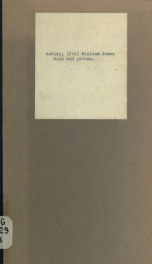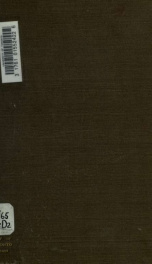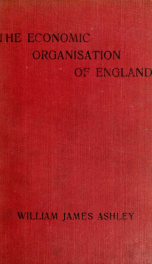On the study of economic history; Roscher's Programme of 1843; History of English serfdom; The Anglo-Saxon "Township"; Professor Allen's "Monographs and essays"; Mr. Round's "Feudal England"; Professor Maitland's "Domesday Book and beyond"; Mr. Seebohm's "Tribal System in Wales"; Dr. Grossmann on the peasants of Brandenburg; Professor Inama-Sternegg's German Economic history; Professor Meitzen's "Settlement of the Germans; Professor Knapp's lectures; M. Flach's "Beginnings of Ancient France"; Mr. Jenks on the State and the Clan; Mr. Baden-Powell's "Indian Villege Community"; Professor Wigmore on Land Tenure in Japan; Professor Hildebrand's "Law and Custom"; On an alleged English fashion: the word "mark"; The Beginnings of town life in the Middle Ages; Professor Gross's "Gild Merchant"; Professor von Below's Tractates; Mrs. Green's "Town Life in the Fifteenth Century"; Professor Maitland's "Township and Borough"; Mr. Round's "Commune of London"; Professor Pirenne on the Flemish Towns; Karl Wilhelm Nitzsch; Journeymen's Clubs; Montchrétien; The Tory Origin of Free Trade Policy; Gourney; The Commercial Legislation of England and the American Colonies 1660-1760; American Smuggling, 1660-1760; Canadian Sugar Combine; American Trusts; Mr. Smith's New Trades Combination, in the English Midlands; Co-operative production in England; The Economic Atmosphere of America: "The American Spirit"; Sir George Nicholls; Arnold Toynbee; Edward A. Freeman; Lord Acton; Jowett and the University Ideal; Scholarships at Oxford and at Harvard; The University of Fribourg in Switzerland 26











